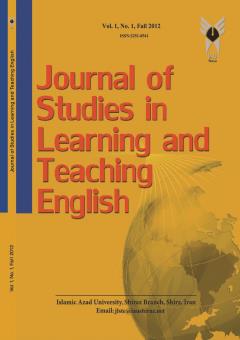available option for higher education institutions around the world. In Iran, universities used various platforms. For example, the Islamic Azad University started utilizing an exclusive platform (Vadana) and Payame Noor University used Adobe Connect. However, some chal
More
available option for higher education institutions around the world. In Iran, universities used various platforms. For example, the Islamic Azad University started utilizing an exclusive platform (Vadana) and Payame Noor University used Adobe Connect. However, some challenges and problems were reported by the educators and students using these platforms, somehow due to a lack of preparation and premeditation. This study focused on the problems and challenges in contrast to the opportunities and solutions associated with e-learning among university educators and students through a mixed-methods approach. On the quantitative side, two questionnaires were created and distributed among undergraduate TEFL students. In total, 216 responses were received. The findings revealed that the participants were mostly in agreement with the statements mentioned in both questionnaires. Later, using Confirmatory Factor Analysis, both questionnaires were validated. In addition, semi-structured interviews were conducted with 7 faculty members. Data saturation was reached after 5 interviews. The interview texts were then transcribed, and the findings were qualitatively presented and discussed. Based on the findings, the challenges and problems of e-learning encompassed technical issues, physical and mental concerns, additional burdens, assessments, proper training, IT literacy, and issues related to pedagogy. On the other hand, e-learning yielded benefits such as enhancements in communication, interaction, teaching, and learning, along with increased accessibility, convenience, productivity, and safety. The findings might be of value to students, educators, policymakers, and administrations involved in the delivery of online English language teaching in Iran.
Manuscript profile


